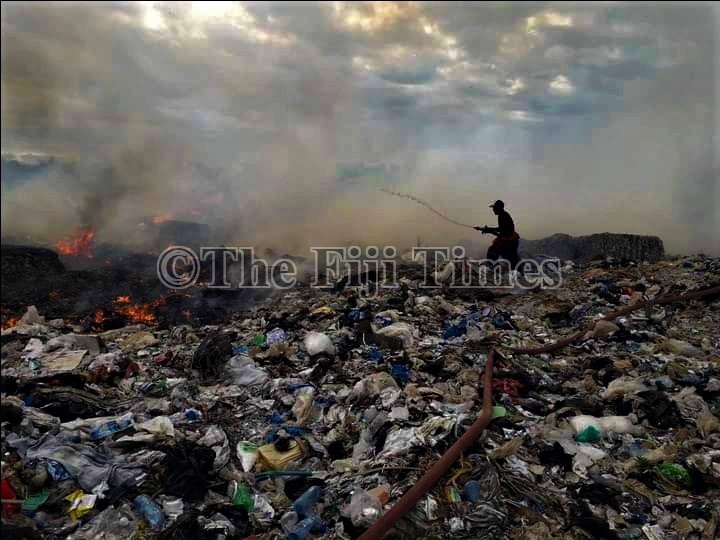Now that the Lautoka City Council has revealed plans to relocate its dump site, there will no doubt be attention focused on the move, and some joy.
LCC senior health inspector Salen Singh said the Vunato landfill was located near the coastline and this posed an environmental risk.
He said one of the serious concerns hovered around the constant burning at the dump site.
He said it wasn’t a new issue and there were “many factors involved that contribute to this ongoing problem”.
He revealed there was a long-term plan to move the dump in the next few years.
“We want to move it not only away from the seaside but also away from the city boundary.”
While the search for a new location had begun, he said the council had been working to address the issue of indiscriminate burning.
To that end, security had been improved.
“We have 24-hour security at the site now and we are also working very closely with local authority like the National Fire Authority on how quickly we can respond to the fires from the dump,” he said.
Environment director Sandeep Singh said they were pleased with the effort by the council to address concerns of landfill fires.
She said the department received complaints about indiscriminate burning and was working with municipal councils to ensure there were no major environmental risks resulting from these incidents.
Now this is all well and good.
The issue we have to contend with though is that of ‘waste’, and how much waste are we expecting to fill up our dump sites?
Then there is the question about how long will it take to fill up our dump sites?
And are we thinking about overflowing waste, and how much of this will our dump sites hold, or have we considered whether we have the capacity to hold all our waste, and for how long before we run out of space?
We reflect on the fact that we live in a world that is filled with takeaway packs, plastic bottles, and other waste from damaged and used white goods to mechanical items and so on.
So it makes sense then that advocates of recycling should be heard.
According to the United Nations Environment Programme, the increasing volume and complexity of waste associated with the modern economy is posing a serious risk to ecosystems and human health.
We also learn that every year, an estimated 11.2 billion tonnes of solid waste is collected worldwide and decay of the organic proportion of solid waste is contributing about 5 per cent of global greenhouse gas emissions.
Of all the waste streams, waste from electrical and electronic equipment containing new and complex hazardous substances presents the fastest-growing challenge in both developed and developing countries.
Poor waste management — ranging from non-existing collection systems to ineffective disposal — causes air pollution, water and soil contamination, it noted.
So we agree with the report that the solution, in the first place, is the minimisation of waste.
And this is where recycling comes in.
Besides, recycling creates jobs as well, which is a major positive effect.
So let’s consider what we do with our waste.
Let’s appreciate what it can do to our lives in the long run, and to our environment, if it is not disposed properly.





